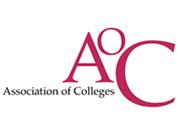A Look at the New AOC Charter for an International Strategy

It is a fairly widespread belief that we are living in a smaller world than ever. As such, it is vital to the success of the Further Education sector that we share experiences of education and training throughout the world to meet the challenges of the twenty first century. As such, FE News has invited Brooke Van Dam to be the International Education Correspondent. In her first article, she assesses the Association of Colleges (AoC) Charter for International Strategy.
The Charter
The new Charter put forward by the AoC is not the most ambitious document; nor is it very radical. What the Charter does accomplish is to remind us of the importance of International Education and challenges Colleges to move forward into the 21st century. As the AoC states at the very beginning of the document:
“The commitment of UK further education colleges to developing world class standards in vocational education and lifelong learning has the potential to become one of the most significant knowledge based “exports” for our economy and ambassador for our country in a difficult and troubled world.”
Four Central Commitments
The Charter, which can be signed or not as a College chooses, encompasses four central commitments. The first commitment a College would enter into if it decides to sign the Charter dictates that the college must have the suitable management infrastructure to support international work. Without this, such co ““ operation would prove to be difficult at best.
The second calls for the College to agree to the international strategy and development plan. This plan includes, amongst other things, targeting areas for development; providing opportunities for the appropriate professional development for all staff and managers; and seeking to spread the benefits of working internationally across the college.
The third commitment would see the college guaranteeing the quality of services to international students and partners and, where relevant, to specific activities as well. The final commitment says that the college is obliged to guarantee an ethical and inclusive approach in all its international activities.
Hoping for a Framework
Practically speaking, the new Charter hopes to provide a framework for colleges to reach out. Some of the activities the AOC seeks to promote include encouraging international students to come to the UK; student exchanges and overseas work placement; and staff exchanges and joint educational projects. Thus the sharing of best practice would be expanded beyond national boundaries; a global approach to education and training for the next century in an ever ““ shrinking world.
It remains to be seen if the Charter accomplishes its goals. The key element will be the individual Colleges” commitment to the Charter and ultimately the future. Dr. Kim Howells MP, Minister of State for Lifelong Learning, sums up the importance of this Charter by saying:
“We need to understand the world we live in, know what constitutes world class standards and work in collaboration with partners throughout the world who share our vision and aspirations. We have much to give and much to learn from others.”
Brooke Van Dam, International Education Correspondent
What can we learn, and what can we offer? Tell us in the FE Blog
“











Responses